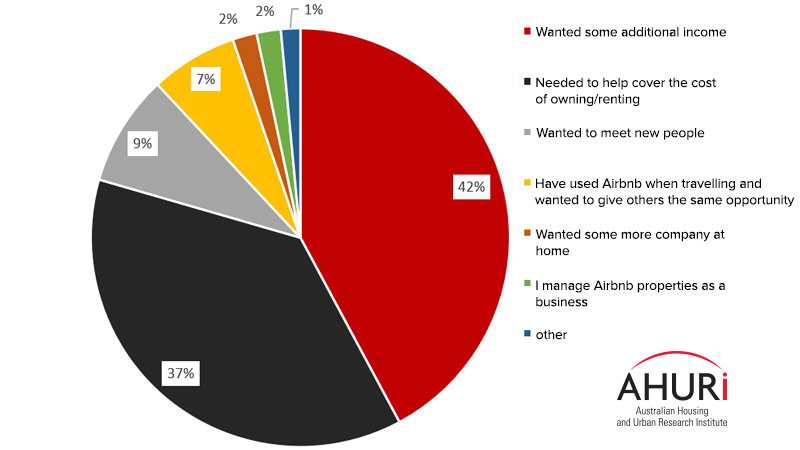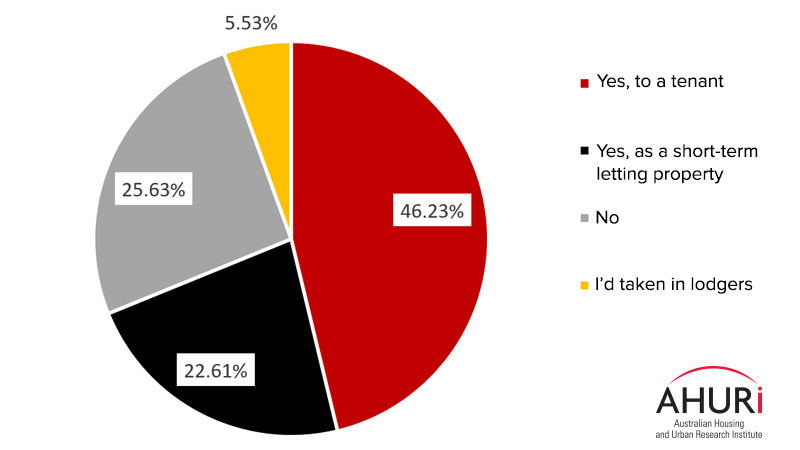Platforms like Airbnb have brought about huge growth in short-term letting (STL) practices. AHURI research has identified a number of quite different reasons that motivate hosts to list their dwelling on Airbnb.
The AHURI report surveyed 491 people in Sydney and Melbourne who currently or previously made their property available through Airbnb and found that 42 per cent see STL as a way to earn some additional income and that 37 per cent saw it as way to help cover housing costs.
Figure 1: Survey responses to 'What motivated you to start advertising your property on Airbnb?'

While financial returns are a prime motivator for Airbnb hosts, nearly one in five (18%) saw non-financial reasons as the key to their involvement, with 9 per cent wanting to meet new people, 7 per cent wanting to give others the opportunities they had when they were travelling and 2 per cent wanting company at home.
For over a quarter of respondents (25.6%) putting their property on Airbnb was the first time they had rented it out, while nearly half (46.2%) had previously had their property available in the private rental market.
Figure 2: Survey responses to 'Prior to using Airbnb, had you previously rented out the property out in any way?'

The evidence suggests that for some, renting out part or all of their property will be a way of lifting themselves out of immediate hardship. For the majority, however, it appears that STL is a way to earn additional income, whilst supporting a business model that is seen to offer social or cultural benefits as well.
Overall, the survey results suggest that the main motivation for listing on Airbnb is to earn additional money from housing assets, in a way that is perceived to minimise risk. While in some cases this additional income is tied to an immediate need for a financial buffer against housing insecurity, this is not the case for most participants in the research. Instead, Airbnb provided a way to boost their discretionary spending. At the same time, these financial motivations were bolstered by the fact that hosting on Airbnb was also seen to bring additional intrinsic benefits. These included the opportunity to connect with diverse people from around the world, a sense of value associated with being a good host, and a desire to give something back to the international community.

